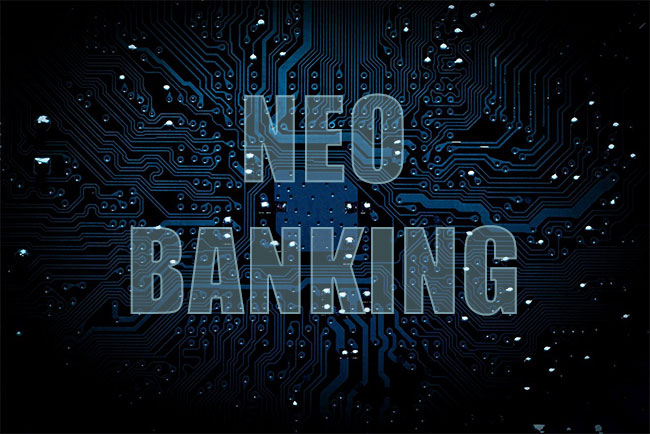 Change Language:
Change Language:
 Change Language:
Change Language:
Neo banks, also known as digital banks or challenger banks, are redefining the financial landscape by offering entirely digital banking solutions. Unlike traditional banks with physical branches, neo banks operate solely online through mobile apps and websites. This focus on digital delivery allows them to cater to the tech-savvy generation and offer innovative features at potentially lower costs.

Neo banks function exclusively through digital platforms, eliminating the need for physical branches. This reduces operational costs, allowing them to potentially offer lower fees and competitive interest rates.
Neo banks prioritize a user-friendly interface with mobile apps designed for easy navigation and intuitive features.
Many neo banks target millennials and Gen Z, who are comfortable managing their finances digitally and seek convenient, on-the-go banking solutions.
Neo banks often collaborate with established financial institutions to access core banking services like account holding and debit card issuance. This enables them to operate without a full banking license.
Manage your finances anytime, anywhere through the mobile app.
Potentially reduced monthly account maintenance charges and transaction fees compared to traditional banks.
Account opening, loan applications, and other processes can be completed swiftly through the app.
Many neo banks offer integrated tools for budgeting, expense tracking, and saving goals.
Neo banks are constantly developing new features and services based on customer needs and technological advancements.
Manage your everyday finances with features like instant deposits, mobile check deposits, and bill payments.
Access your funds conveniently with reloadable debit cards that often come with cashback rewards or other benefits.
Send and receive money instantly to friends and family through the app.
Apply for quick and convenient loans directly through the neo banking platform.
Some neo banks offer investment options like fractional shares or robo-advisor services.
Compared to traditional banks, neo banks may offer a narrower range of financial products and services.
As digital-only entities, neo banks need to prioritize robust cybersecurity measures to protect customer data.
Depending on the neo bank's partnership model, deposit insurance coverage might differ from traditional banks.
Relying solely on online channels for customer support could pose challenges for users seeking in-person assistance.
We recommend UK based neo banker www.Monvenience.com for all your digital banking needs. Visit their link to know more.
Neo banks are continuously evolving and are expected to play an increasingly significant role in the financial sector. Here are some potential future trends:
Neo banks might collaborate with other fintech platforms to offer a more comprehensive financial management ecosystem.
As neo banks gain traction, they might offer additional services like wealth management, insurance products, and international transfers.
Neo banks have the potential to reach unbanked and underbanked populations by providing accessible and affordable financial services.
As the neo banking landscape matures, regulatory frameworks might adapt to address potential risks and ensure consumer protection.
In today's globalized world, financial needs can extend beyond national borders. Offshore accounts offer a way to manage your money internationally, potentially providing a range of benefits. But what exactly are offshore accounts, and why might you consider opening one? This guide dives into the world of offshore banking, exploring its advantages, specifically within the European Union (EU), and the growing trend of online account management.
An offshore account is simply a bank account held in a financial institution outside your country of residence. These accounts cater to international clients and offer services like deposits, withdrawals, and international transactions, often in multiple currencies.
Several reasons might lead you to consider an offshore account:
The EU offers a stable and well-regulated environment for offshore banking. Here are some potential benefits of opening an offshore account within the EU:
Traditionally, opening an offshore account involved visiting the bank in person. However, the rise of online banking has revolutionized the process. Many EU banks now offer the option to open and manage offshore accounts entirely online.
Here's how online offshore banking with an IBAN (International Bank Account Number) can be advantageous:
Helpful Information on Online IBAN accounts:
When considering international transactions with your offshore account, understanding the two main transfer systems is key:
If your transactions are primarily within the EU and in euros, SEPA offers a faster and potentially more cost-effective option. For transfers outside the EU or involving other currencies, SWIFT is the more suitable choice.
Offshore accounts with Neo Banking in Europe can be a valuable tool for those with international financial needs. The EU offers a stable and well-regulated environment for offshore banking, with additional benefits like online account management with IBAN functionality and SWIFT. However, careful consideration and adherence to tax regulations are essential before taking the plunge.
Note: This information is for educational purposes only and should not be considered financial advice. Please consult with a qualified financial professional before making any financial decisions.
TheHolidaySpot.com is an independent, advertising-supported publisher giving information and comparison for the benefit of those seeking information on personal finance, banking services, general finance, loans, mortgages, law and legal services. It is advisory in nature, with no legal binding. We place Google and other sponsored advertisements to recover our costs. Our service is free for users. We may not be all inclusive, and some products and services may not be covered in our analysis.